 By Jim Young, Chair – EcoB
By Jim Young, Chair – EcoB
April 29th. 2018
BURLINGTON, ON
It is said that “In a democracy, people get the kind of government they deserve”. We believe Burlington deserves better than this.
On Thursday, ignoring the highest number of delegations in its history and some of the best detailed critiques by citizens from every corner of the city and rural areas; Burlington City Council passed its contentious new Official Plan (OP).
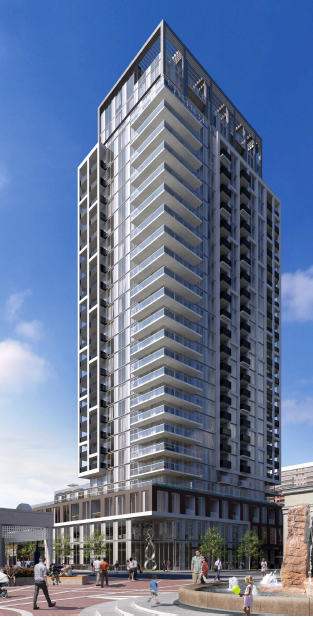
Directly opposite city hall on the north side of James street – 23 storey tower, with a proposed tower to the south. Height for that tower – yet to be determined.
While opposition focused on the downtown, widely viewed as belonging to everyone, there was equal concern about over intensification in individual residential communities. The plan, seven years in the making, was seen by most as too developer friendly, too much in thrall to the province and the region and too often dismissive of local concerns.
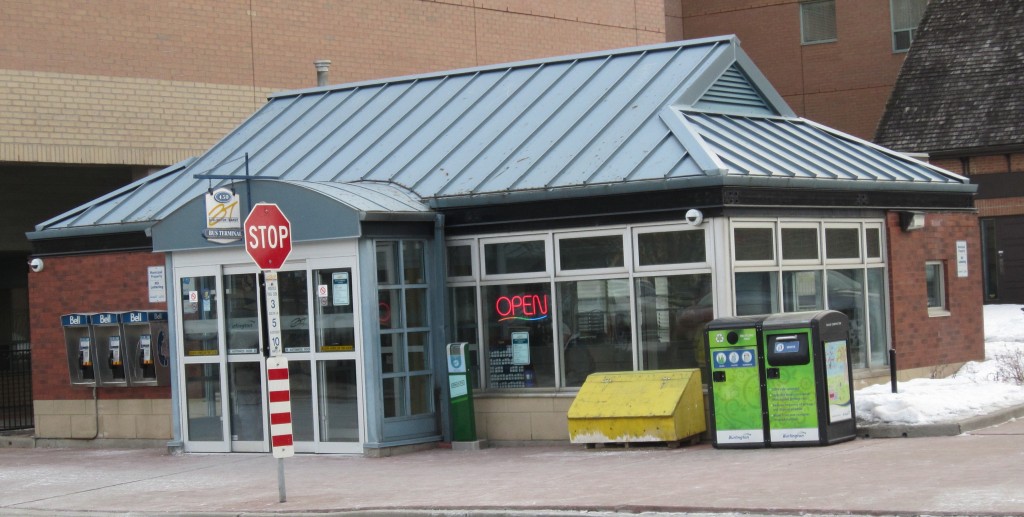
A bus terminal and ticket vending site that was once going to be closed got upgraded to mobility hub.
Putting aside the fears of over intensification in the downtown, the failure to consider more balanced approaches to intensification, the fact that Burlington is already meeting its intensification goals and the ridiculous notion that the John St. bus stop is a “Downtown Mobility Hub”, then the missing details like the definitions of site specific height limits for some precincts, particularly around the Mobility Hubs and the absence of supporting Transit and Parking plans; the greatest point of contention was always the feeling that citizen input was ignored.

A packed public meeting at city hall
The city claims that engagement on the OP was above and beyond but who gets to define “Real Engagement”? In a seven year planning process the city only started to hold information sessions in late 2017 in the unseemly rush to make the downtown a Mobility Hub and therefore an Urban Growth Centre. Only after citizen anger brought ECoB (Engaged Citizens of Burlington) into being did the city even start to pay attention. ECoB position is that this was always too little, too late and that informing is not engagement.
Numerous meetings with Planning and Communication staff failed to move them on the major issues of importance to citizens. Councillors Craven, Taylor, Dennison and Lancaster declined to discuss the OP or the process. The Mayor and Councillor Sharman met with us but had difficulty accepting any vision of engagement other than the staff line that “Information is Engagement”. Only Councillor Meed Ward encouraged greater citizen engagement and her motions at council reflected this.
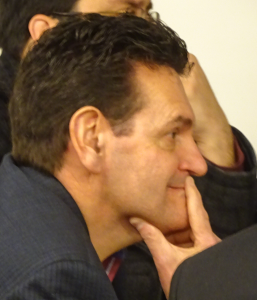
Councillor Rick Craven – wasn’t available to meet with ECoB
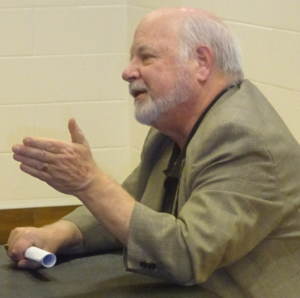
Councillor John Taylor wasn’t available to meet with ECoB

Councillor Jack Dennison wasn’t able to meet with ECoB
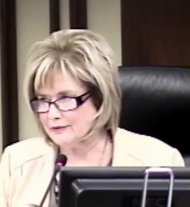
Councillor Blair Lancaster wasn’t able to meet with ECoB
In the final analysis this is another bad plan finalized much too quickly after 7 years of stagnating on staff desks, in an attempt to prevent it from becoming an election issue. It will still be too easy for developers to get sidestepping amendments and it may even favour developers at the newly created Land Planning xxx Tribunal (LPAT) more than the old OP if that had remained in place. Burlington will continue to evolve with much needed resident input. Make this an election issue, change can happen with a new Council.
Perhaps the most disappointing aspect of this, too often, rancorous debate was the self-congratulatory back slapping and high fiving by council on Thursday when they finally approved the new Official Plan. It felt like a council gloating on a victory over its citizens.
Although Council adopted this Official Plan, it requires Regional approval. Staff will be pushing their plan through the Region with additional amendments and the studies that have yet to be completed. Residents will still have the opportunity to demand changes. Until the Region accepts this OP the current OP remains in effect.

October 22nd is municipal election day in Burlington
A new Council can overturn this Official Plan and residents get to choose who fills those council positions in the coming election. You can support candidates of your choice, who reflect your views and work to get them elected in October.
If “The purpose of debate is not to win but to make progress,” then ECoB will continue to seek progress from this debate. If any good is to come from this, it should be in the form of improved citizen engagement; despite the city’s claims, there is much room for improvement.
ECoB will explore all options, and continue to reach out to City Council, Communication and Management Staff. A start point for that outreach might well be the long ignored 2011 council report “Shape Burlington”, which uncannily predicts the present citizen engagement issues.














